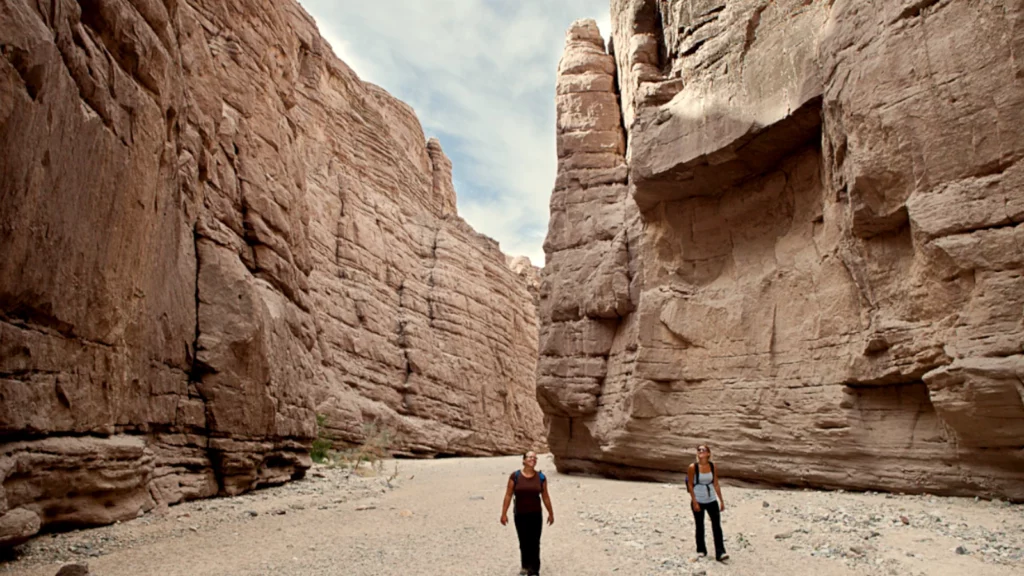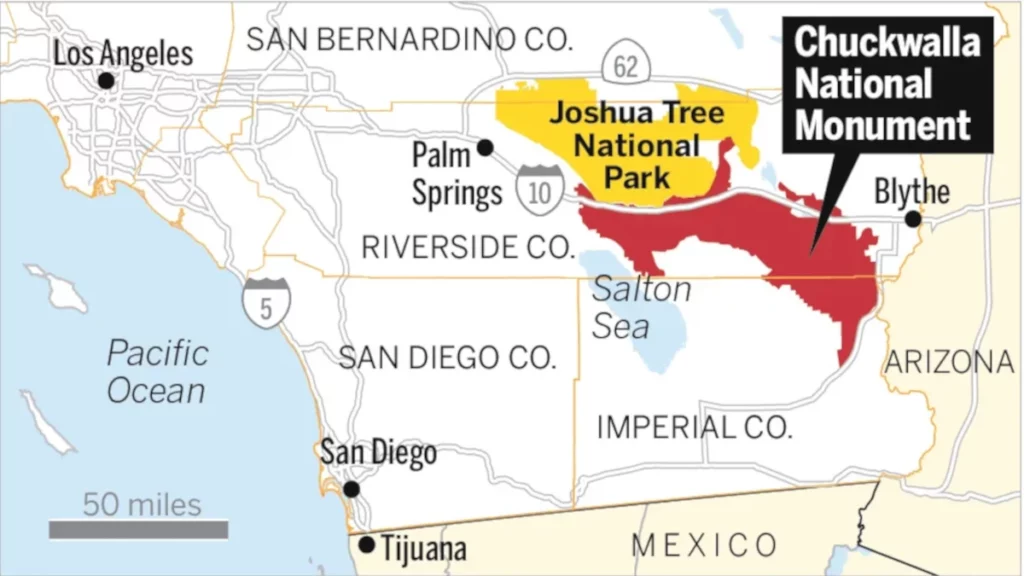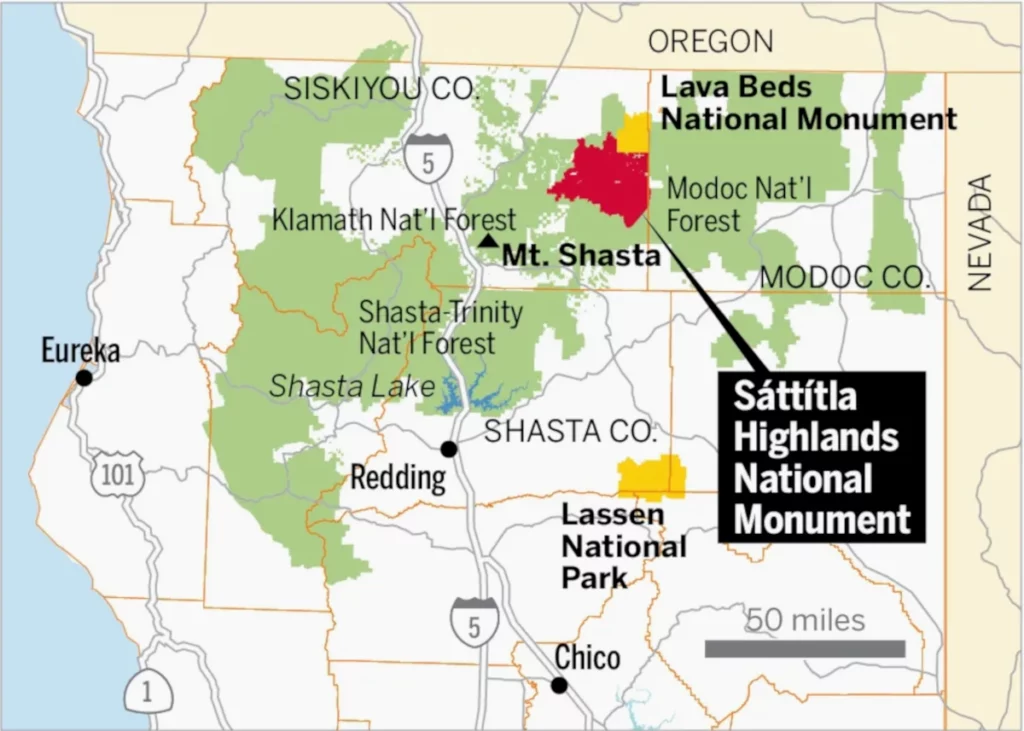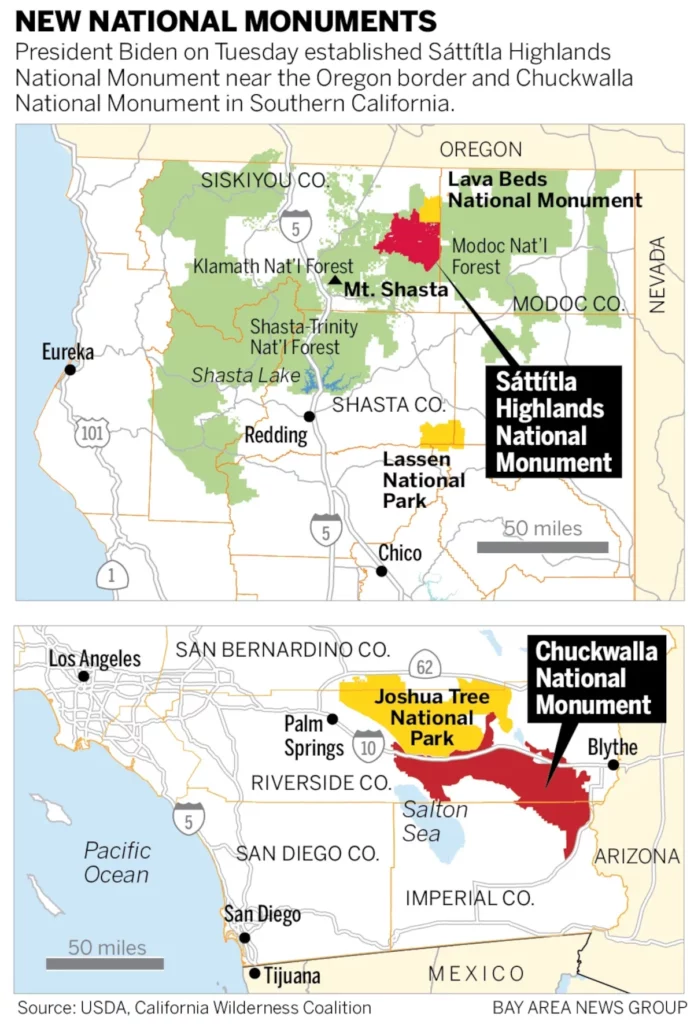Saving California’s Deserts, One Monument at a Time
In a significant advancement for desert conservation, President Joe Biden has officially designated the Chuckwalla and Sáttítla National Monuments, safeguarding nearly 848,000 acres of California’s breathtaking landscapes.
This decision not only highlights Biden’s commitment to environmental protection but also marks a pivotal moment in the ongoing efforts to preserve culturally significant lands.
The Chuckwalla and Sáttítla National Monuments were officially designated on January 14, 2025.
President Biden planned to announce the new monuments in California last week, but he had to cancel his visit to Coachella Valley due to the raging wildfires near Los Angeles. Instead, he made the announcement at the White House on Tuesday evening.

Biden Takes a Stand for Desert Conservation
The Chuckwalla National Monument, now spanning 624,000 acres, ranks as the fifth-largest land-based national monument in the continental United States.
Located between the Coachella Valley and the Colorado River, this area is not only ecologically diverse but also rich in cultural heritage.
For the Torres Martinez Desert Cahuilla Indians, this land holds sacred significance, making its protection a monumental achievement for Indigenous advocacy.
The Chuckwalla region is home to a variety of wildlife, including bighorn sheep, desert tortoises, and the iconic Chuckwalla lizard.

The establishment of this monument ensures that these species will have a protected habitat, promoting biodiversity and ecological balance in the desert ecosystem.
Meanwhile, the Sáttítla National Monument, covering over 224,000 acres near the Oregon border, features lush forests and pristine lakes.
This area is vital for the Pit River Nation, who regard the Medicine Lake Highlands as their ancestral homeland.
The designation of Sáttítla not only preserves these landscapes but also honors the cultural significance they hold for Indigenous peoples.
Interior Secretary Deb Haaland, the first Native American to serve as a Cabinet secretary, has played a crucial role in amplifying tribal voices in land management decisions.
She emphasized that preserving these landscapes is essential for future generations, reflecting a collaborative approach where environmental groups and tribal leaders unite to advocate for conservation.
Cultural Heritage and Biodiversity at Stake
Supporters from various sectors—including environmental organizations and tribal leaders—celebrate these designations as victories for wildlife and cultural preservation.
In terms of drawbacks, there are concerns from off-road enthusiasts, small-scale miners, and some local officials who fear that these protections may restrict recreational activities and economic opportunities.
As President Biden approaches the end of his term, his administration has achieved a historic milestone by protecting more land and waters than any previous president.


The creation of the Chuckwalla and Sáttítla monuments exemplifies a new model of conservation that prioritizes both ecological integrity and cultural heritage.
These national monuments represent not just a renewed interest in land preservation but also a commitment to honoring the voices of Indigenous communities in the United States.
This ensures that future generations can enjoy these remarkable landscapes. As outdoor enthusiasts look forward to exploring these protected areas, they can appreciate the profound significance behind their preservation.


Your n°1 source of information on the world of sandsports and desert adventure travel. Our articles are the result of extensive research, personal experience, and knowledge-sharing within the global sandboarding community.